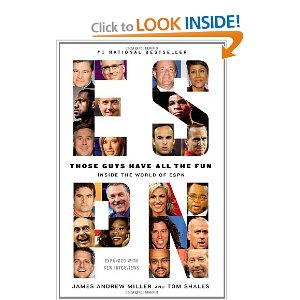10 years later, still talkin' about practice
This week was the 10th Anniversary of NBA legend Allen Iverson's classic 'talkin' about practice' press conference, where the Philadelphia 76ers star, just a few days after seeing his Sixers team eliminated in the first round of the playoffs by the Boston Celtics addressed the media and was confronted with questions about his (allegedly poor) practice habits. Iverson had a tempestuous relationship with 76er coach Larry Brown, himself no stranger to controversy, and the 'practice' rant stemmed largely from Brown's comments to the media about Iverson's casual attitude towards practice and preparation.
Some video exists from the 2002 press conference, (embedded below, email and RSS subscribers will need to click through), that shows Iverson in full on 'practice' rant, mentioning about 20 times in two and a half minutes that he saw it as being ridiculous as a the franchise player, and league MVP just one season prior, and a legendary fierce and fearless competitor, that he had to spend time well, talking about practice.
Video below and some more comments from me after the jump...
A few things about Iverson's comments and the 'practice' issue overall.
One, the video, and most of what everyone remembers from the press conference was the two minutes of so of Iverson repeating, 'we're talking about practice, not a game' over and over, which makes it very easy to call into question Iverson's dedication and commitment. What is missing from the video, and can be found in the full transcript of the press conference here, is that before and after the 'practice' rant, Iverson talked openly about being hurt, confused, and disappointed in trade rumors that were floating around at that time. Iverson, rightly so, considered himself and was recognized by the league, as one of the very best players in the game. In 2002, he was in the middle of an 8 or 9 year run where he'd be named to the All-NBA 1st, 2nd, or 3rd team each year. In our workplace parlance, he was 'top talent' an 'A player' or a purple squirrel if you will. So naturally Iverson would have to be surprised and insulted that the team he had performed so well for, including dragging on his back to the NBA finals just one year prior, would even consider shopping him around the league.
Two, the rant, and the 'practice' context raise really interesting and ongoing questions about talent and more specifically how hard it can be to 'manage' the best talent. Iverson was a former league MVP, the league's leading scorer, and had an unquestionably ferocious style of play, notable for a guy just 6 feet tall and thin-framed. No one who watched Iverson play consistently ever came away from recognizing his commitment and intensity to winning basketball games. At the time of the 'practice' press conference, he was 26, had just completed his 6th year in the league, and won his third league scoring title. Was he a perfect player? No. But he was one of the very best in the game and it can be argued he knew how to best prepare himself and his body to stand up to the rigors of a long season and playoffs.
Should Iverson have been more attentive and subservient to the wishes of the coach, and tried to be a more dedicated 'practice' player?
Probably.
Did Brown know the right way how to get the best out of Iverson, his star player?
Probably not.
I guess I am coming off as a bit of an Iverson apologist here, especially when most of the people that have seen or heard about the 'practice' rant come to the quick conclusion that Iverson was selfish, pampered, and in the wrong. I guess all I will say to that is as a manager or leader you eventually sink or swim largely by your ability to get the best performance out of your star performers.
Iverson has some blame here for sure, but definitely not all of it.
Probably too much of it.

 Steve
Steve
